There is a growing disconnect between what’s on the news (alarming, irritating and mind-numbing) and what is on my heart. Like a miracle tonic is the soul-rest I take in from little sure things now: like sunlight, and birdsong, like seeds sprouting and yeast working. And sure things are not all sweet. The words of the prophets give me warning and set me straight when all else is failing. There is, I am experiencing, a better place of peace than the typical two options we are seeing displayed otherwise, and everywhere. You see either:
- Angry-at-this-world revolution, whether left or right, there’s a lot of this.
- Removal in self-placating denial, or just plain helplessness.
I am observing it all, pondering. My anger has gotten me nowhere (the advantage of years can teach) and helplessness is just a black hole of another name. Denial is a drug that doesn’t work. I am having to look in earnest at a different option. You can too.
Start here: Psalm 19.
The Psalms are each an emotional journaling of a God-seeker. They are honest, some are angry, none are the words of pretenders. In this one, the writer is himself looking out at what is sure. He has to look beyond himself to do that. Like a standing rider in a fast moving train, he has to grab the hand pull.
The writer speaks of the outpouring that is continually available, day and night, there for the reaching.
Then in the second section of this poetic expression, he elaborates on the source of this outpouring and what God’s provision can do in the soul. This is sure for any who will take it in. This is available now. This is pouring into our world at the same time that the other junk we have to deal with is all around us. You still have a choice.
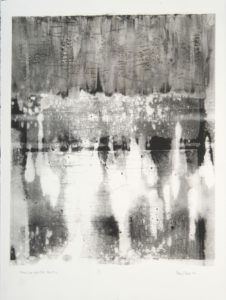 I illustrate this today with a piece I made some years ago. If you wanted to own this you would have to pay me a lot of money, and the work would need to be hand delivered for it is encaustic wax. But you can see and ponder it here for free. It is a response to Psalm 19’s declaration of the outpouring into our ground. I think it is a masterpiece, “after the Master” who said he was doing this communication into our broken places freely “day to day” and “night to night” Such an idea calms my anger, and awakens my dulled spirit. That’s what the truth does, it breaks in. George Orwell observed in another difficult time that “During times of universal deceit, telling the truth becomes a revolutionary act.” And so it is.
I illustrate this today with a piece I made some years ago. If you wanted to own this you would have to pay me a lot of money, and the work would need to be hand delivered for it is encaustic wax. But you can see and ponder it here for free. It is a response to Psalm 19’s declaration of the outpouring into our ground. I think it is a masterpiece, “after the Master” who said he was doing this communication into our broken places freely “day to day” and “night to night” Such an idea calms my anger, and awakens my dulled spirit. That’s what the truth does, it breaks in. George Orwell observed in another difficult time that “During times of universal deceit, telling the truth becomes a revolutionary act.” And so it is.
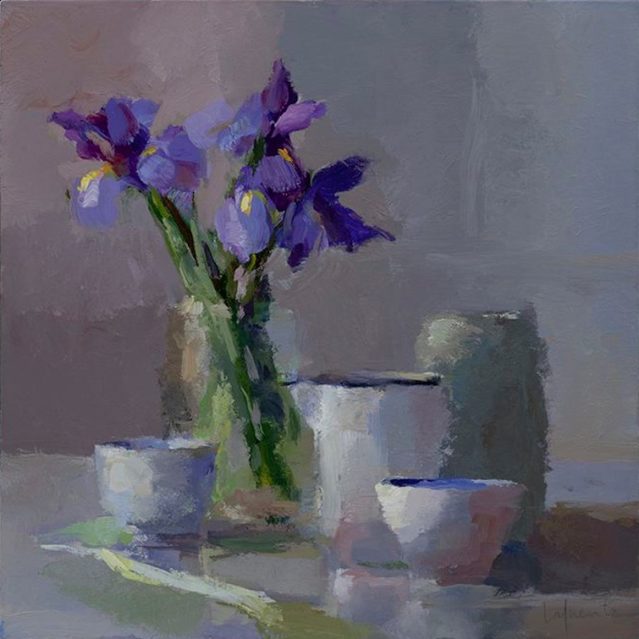
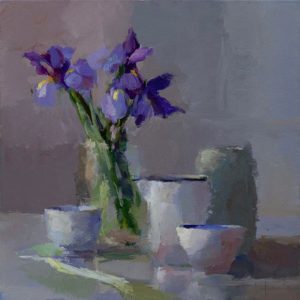 The settings are dim, completely uninteresting on their own. So, the piercing bits of beauty are apprehended all the more. Her gestural gems are gathered out of mud. It’s the boring that gives the beauty its chance to captivate. To me her work is a parable, a picture of the distinctiveness between that which shines, and that which is only a passing setting.
The settings are dim, completely uninteresting on their own. So, the piercing bits of beauty are apprehended all the more. Her gestural gems are gathered out of mud. It’s the boring that gives the beauty its chance to captivate. To me her work is a parable, a picture of the distinctiveness between that which shines, and that which is only a passing setting.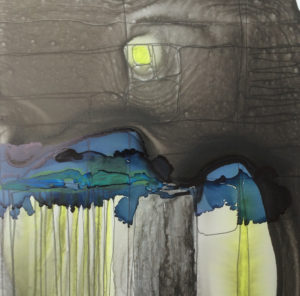 But we had to think forward now. We knew that if we made it to our own street we would never make it up the hill. I coached the man behind the wheel that we best park on the flat spot and walk that last way home. He is a determined man. I have been by his side over 4 decades. So we kept on going and incredibly swerved up the hill getting ready to negotiate the last turn. And there it was ahead, as if she was expecting us. Our neighbor, with the much flatter driveway had her garage door open, space made available for our truck. Her big light was on and she was beckoning us forward. We laughed again, “how come we’re so lucky?” “how come we’re not in a ditch also?” There is no good answer. And so my non-religious neighbor got out an antique hymnbook and the three of us sat at her table and sang. This is unexpected joy.
But we had to think forward now. We knew that if we made it to our own street we would never make it up the hill. I coached the man behind the wheel that we best park on the flat spot and walk that last way home. He is a determined man. I have been by his side over 4 decades. So we kept on going and incredibly swerved up the hill getting ready to negotiate the last turn. And there it was ahead, as if she was expecting us. Our neighbor, with the much flatter driveway had her garage door open, space made available for our truck. Her big light was on and she was beckoning us forward. We laughed again, “how come we’re so lucky?” “how come we’re not in a ditch also?” There is no good answer. And so my non-religious neighbor got out an antique hymnbook and the three of us sat at her table and sang. This is unexpected joy.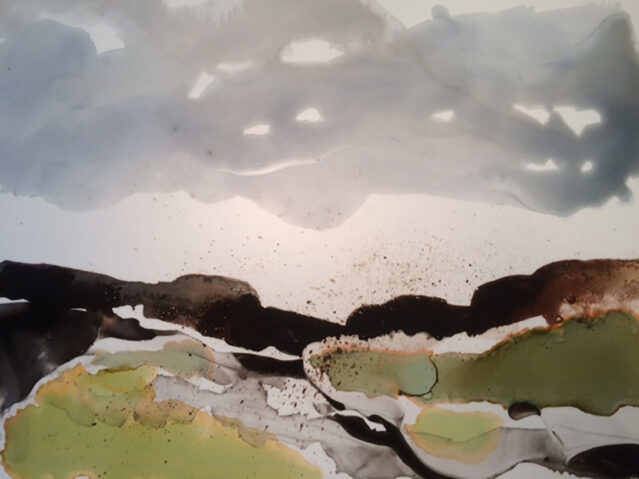
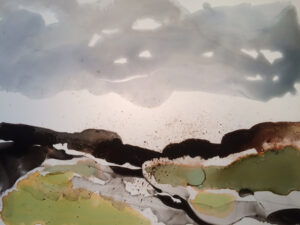
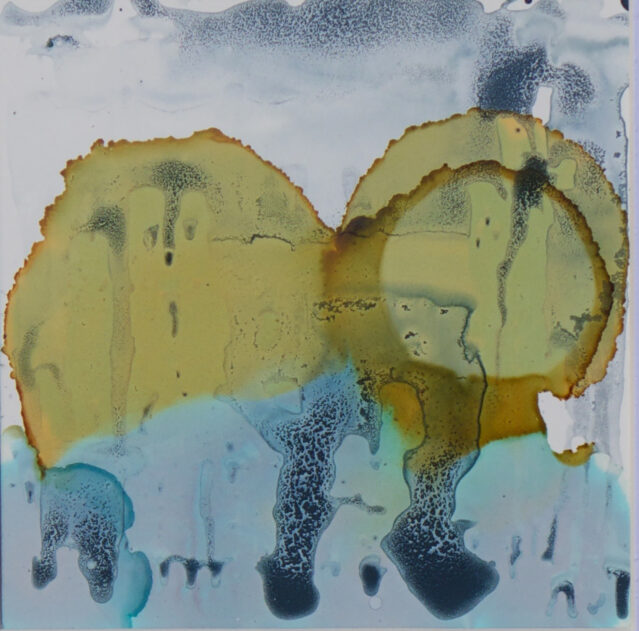
 There is an image I cannot now get out of my head. You may have seen it. I wont attach the visual. Instead I leave a frame to honor the little boy whose body washed up on a beach in Turkey. My heart aches for him, for them, for us. Refugees are flooding away from the terror in the Middle East. A truck stuffed with 71 suffocated souls was left on the side of the road in Austria. Traffickers entice the desperate into what becomes more desperation. Is this not increasing horror? How do we manage this, how does my own heart respond? To ignore it is easier but I cannot. To post something about beauty, or about hope now is excruciating. I used to wonder how people handled terrible events during WW2. Now I feel I am living it.
There is an image I cannot now get out of my head. You may have seen it. I wont attach the visual. Instead I leave a frame to honor the little boy whose body washed up on a beach in Turkey. My heart aches for him, for them, for us. Refugees are flooding away from the terror in the Middle East. A truck stuffed with 71 suffocated souls was left on the side of the road in Austria. Traffickers entice the desperate into what becomes more desperation. Is this not increasing horror? How do we manage this, how does my own heart respond? To ignore it is easier but I cannot. To post something about beauty, or about hope now is excruciating. I used to wonder how people handled terrible events during WW2. Now I feel I am living it.